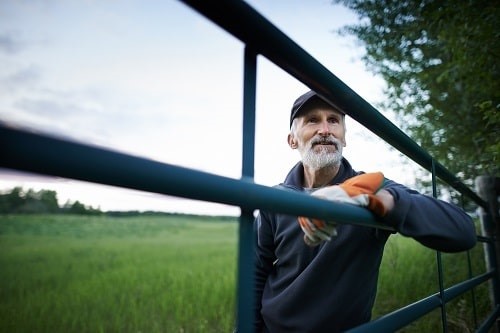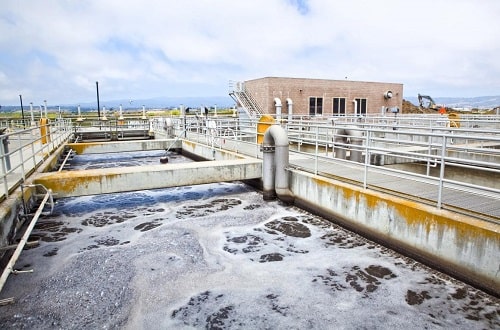The number of deaths on farms fell significantly in the past year, but a charity dedicated to farm safety and mental health has said that HSE figures are still a concern.
News
Farm Safety Week takes place amid ‘sobering’ statistics
The latest Fatal Injuries in Agriculture report, issued by HSE for the start of Farm Safety Week (18–22 July), reveals that 25 people were killed on farms in Great Britain in the past year, compared with 41 in the previous 12-month period.
The oldest farmer killed in the most recent year was 85 and the youngest person killed was a nine-year-old child.
Although, the number of fatal injuries in farming has fallen by around half since the early 1980s, the rate of fatalities is still 21 times higher than the average five-year annual rate across all industries.
 The rate of workplace fatal injury in agriculture remains the highest of any sector. Photograph: iStock
The rate of workplace fatal injury in agriculture remains the highest of any sector. Photograph: iStock
Stephanie Berkeley, manager of the Farm Safety Foundation, which set up the safety week to bring the farming community together and raise awareness, said: “Despite an encouraging improvement in the HSE figures over the past year, these are very sobering statistics.
“The fact remains that, over the past year, 25 people lost their lives on GB farms, so awareness may be one thing, but the time has come for action.
“This is why, a decade on, a focus like Farm Safety Week is still important. When many voices join together to drive a change, this is when it can happen. We should be farming safely every day of the year, not just during Farm Safety Week.”
The National Farmers Union has chosen the campaign to encourage farmers to sign up to a new online learning course the union has developed with Lantra, in conjunction with HSE.
The training reminds farmers about the risks of working at height, with cattle and other risks which have remained the most common causes of death in agriculture for many years.
Sue Thompson, head of agriculture at HSE, said: “Farming families are left devastated every year when their loved ones are killed.
“The numbers of fatalities this year is lower than last, and we are starting to see improvements in some areas, but the pace of change is slow, and the rate of workplace fatal injury in agriculture remains the highest of any sector.”
She said that agriculture would continue to be a priority sector for HSE: “Everyone in agriculture has a role to play in making the changes we all want to see. Together, we can make farming safer.”
Fatal injuries in agriculture report 2021/22 here
Farm safety week is run by the Farm Safety Foundation which campaigns all year round. More information here
NEWS

Calls for wellbeing focus intensify as UK economic inactivity rate rises further
By Kerry Reals on 16 April 2024
The number of working-age people in the UK who are neither employed nor looking for a job rose again in the December to February period, prompting calls for more investment in training and a greater focus on the health and wellbeing of the nation.

Water workers abused and assaulted as public anger about sewage leaks rises: GMB
By Kerry Reals on 16 April 2024
More than a third of water workers in the UK have been verbally abused at work by members of the public in the last 12 months, with just over half attributing the rise in abuse to reports of sewage being dumped, according to a recent survey carried out by the GMB union.

Calls for more mental health support for NHS workers grow amid burnout fears
By Kerry Reals on 12 April 2024
Calls for the reinstatement of UK government funding for the provision of mental health and wellbeing hubs for NHS workers have amplified, as a new survey by the UNISON union warns that the threat of burnout could compound healthcare staff shortages.



